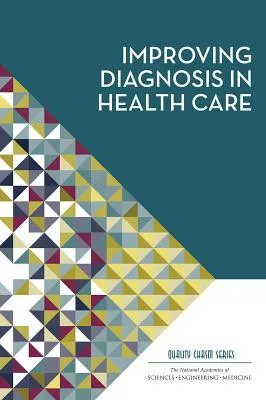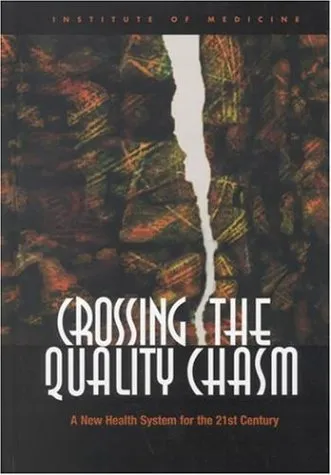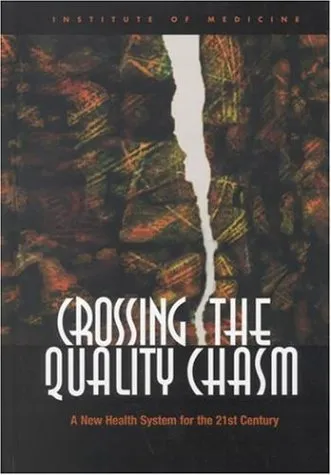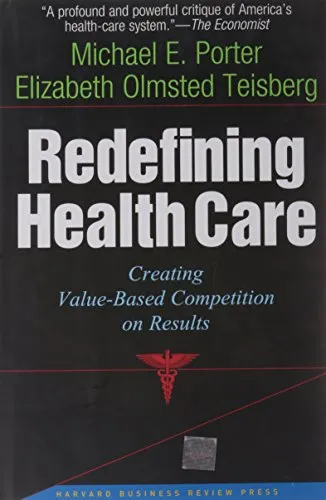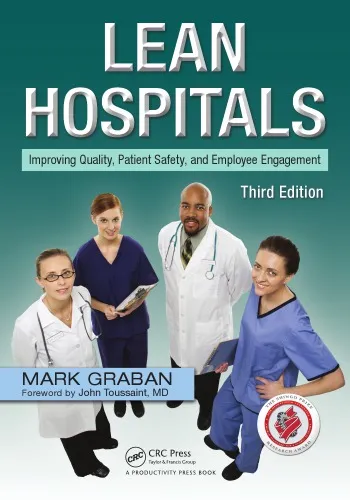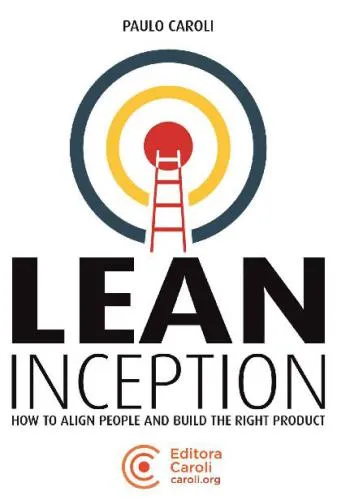Improving Diagnosis in Health Care
4.5
بر اساس نظر کاربران

شما میتونید سوالاتتون در باره کتاب رو از هوش مصنوعیش بعد از ورود بپرسید
هر دانلود یا پرسش از هوش مصنوعی 2 امتیاز لازم دارد، برای بدست آوردن امتیاز رایگان، به صفحه ی راهنمای امتیازات سر بزنید و یک سری کار ارزشمند انجام بدینکتاب های مرتبط:
معرفی کتاب: بهبود تشخیص در مراقبتهای سلامت
کتاب "بهبود تشخیص در مراقبتهای سلامت" که تحت نظر کمیته تشخیص خطا در مراقبتهای سلامت نوشته شده است، به جنبههای مختلف اهمیت تشخیص صحیح در نظام سلامت میپردازد. این کتاب به عنوان یک منبع ارزشمند علمی و عملی برای سیاستگذاران، پزشکان و دانشجویان رشتههای پزشکی و بهداشت و سلامت جهت درک بیشتر چالشهای موجود و راهکارهای پیشنهادی در زمینه بهبود تشخیص بالینی طراحی شده است.
خلاصهای جامع از کتاب
کتاب "بهبود تشخیص در مراقبتهای سلامت" به تفصیل به بررسی فرآیند تشخیص بالینی میپردازد و عیوب موجود در سیستمها و رویههای کنونی را برجسته میکند. نویسندگان بر اهمیت توسعه و بهبود ابزارها و روشهای تشخیصی تأکید دارند که بتواند دقت و اعتبار تشخیصهای پزشکی را افزیش دهد. بخشهای مختلف کتاب به تحلیل دلایل خطاهای تشخیصی، از جمله پیچیدگی بیماران، محدودیتهای فناوری، و مسایل فرهنگی و سازمانی در سیستمهای بهداشت و سلامت میپردازند.
نکات کلیدی کتاب
- تعریف و شناخت دقیق خطاهای تشخیصی و اثرات منفی آن بر سلامت بیماران.
- ارائه راهکارهای عملی برای کاهش خطاهای تشخیصی از طریق بهبود تکنولوژی و فرآیندهای کاری.
- ترویج همکاری بین رشتهای و استفاده از Team-based Care.
- شناسایی ابزارهای نوین برای ارتقای کیفیت دادههای بالینی و استفاده بهینه از آنها.
- آموزش و ارتقای مهارتهای تصمیمگیری بالینی پزشکان و پرسنل بهداشت و سلامت.
نقلقولهای مشهور از کتاب
"تشخیص اشتباه گاه به گاه یک اشتباه پزشکی معمول نیست؛ بلکه مسألهای است که میتواند به شدت بر سلامت و زندگی بیماران تأثیر بگذارد."
"برای بهبود مراقبتهای بیمار، ما باید برنامههای تشخیصی خود را بازنگری کنیم و به فرآیندها و آموزههای خود با نگاهی جدید بپردازیم."
چرا این کتاب مهم است؟
این کتاب به شدت در جهت جامعتر کردن بحثها و تحقیقات مرتبط با خطاهای تشخیصی در سیستمهای بهداشت و سلامت عمل کرده است. از آنجا که تشخیص صحیح بیماری، کلید و اساس ارائه درمان مؤثر است، توجه به این زمینه میتواند تأثیر مستقیمی بر بهبود کلی کیفیت مراقبتهای سلامت داشته باشد. از سوی دیگر، این کتاب با شفافسازی چالشها و ارائه راهنماییهای کاربردی، امکان بهرهبرداری بهتر از سیستمهای پزشکی موجود و کاهش کاستیها را فراهم میآورد. به علاوه، با توجه به افزایش پیچیدگیهای بیماران و بیماریها، پرداختن به تشخیص خطا بیش از پیش دارای اهمیت است. در نهایت، این کتاب به عنوان یک منبع منحصر به فرد برای آموزش و تمرین بهتر مهارتهای تشخیصی در سطحهای مختلف سیستم سلامت عمل میکند.
Introduction
In the precise and intricate field of healthcare, diagnosing a patient's condition sets the stage for supporting their journey towards healing and wellness. However, despite advancements in diagnostic tools and knowledge, diagnostic errors remain a significant challenge, posing threats to patient safety and health outcomes. "Improving Diagnosis in Health Care" is a seminal work that addresses this critical aspect of healthcare delivery, shedding light on its complexities and proposing systemic improvements.
Detailed Summary of the Book
"Improving Diagnosis in Health Care" is authored by the Committee on Diagnostic Error in Health Care under the National Academies of Sciences, Engineering, and Medicine. This comprehensive report delves deep into the root causes of diagnostic errors and their impact on patient care. It offers a thorough examination of the healthcare diagnostic process, identifying where and why errors occur.
The book explores the interplay of various factors such as communication breakdowns, systemic inefficiencies, and the cognitive challenges faced by healthcare providers. By focusing on the science of human decision-making, the book proposes that a deeper understanding of these elements can significantly reduce errors. It strongly advocates for a culture of transparency, communication, and learning to foster diagnostic excellence.
The committee presents a set of eight actionable recommendations that aim to improve diagnostic accuracy, reduce harm, and ensure effective communication between patients and healthcare teams. These recommendations encompass training initiatives, policy reforms, and technological advancements, all driven by a commitment to enhance the diagnostic process and outcomes.
Key Takeaways
The book's central message is the transformational power of addressing diagnostic errors within the healthcare system. Here are some key takeaways:
- Patient-Centered Care: Involving patients actively in the diagnostic process is vital. Their perspectives can offer valuable insights and contribute to more accurate diagnoses.
- Collaborative Effort: Improving diagnosis is a team-based endeavor that involves healthcare providers, patients, policymakers, and technology developers working in harmony.
- Educational Reforms: Training programs must include comprehensive diagnostic education to prepare healthcare professionals to navigate the complexities of diagnosis effectively.
- Technological Integration: Leveraging advancements in health IT and data analytics can enhance diagnostic processes, provided these tools are implemented thoughtfully and ethically.
- System Approach: A systemic perspective that considers the entire healthcare system's role in diagnosing is necessary to foster meaningful change.
Famous Quotes from the Book
"The diagnostic process is a complex, patient-centered, collaborative activity that involves several tasks, including information gathering, integration, and interpretation."
"Improving diagnosis in health care is a moral, professional, and public health imperative."
Why This Book Matters
"Improving Diagnosis in Health Care" stands as a pivotal work in understanding and tackling diagnostic errors — a major concern in medical practice. The insights offered are not just theoretical but have practical implications that can revolutionize patient safety and health outcomes. Given its detailed exploration of systemic changes and alignment with current healthcare challenges, the book is an invaluable resource for anyone committed to advancing healthcare's quality and reliability.
The book encourages healthcare organizations to foster a culture of learning and transparency, fostering environments where healthcare professionals feel empowered to learn from mistakes. It also lays the groundwork for future research and policy initiatives that aim to minimize diagnostic errors and improve patient care.
Ultimately, this book is essential reading for healthcare leaders, practitioners, educators, and policymakers, as it emphasizes the crucial imperative of enhancing diagnostic precision as a cornerstone of high-quality health care.
دانلود رایگان مستقیم
شما میتونید سوالاتتون در باره کتاب رو از هوش مصنوعیش بعد از ورود بپرسید
دسترسی به کتابها از طریق پلتفرمهای قانونی و کتابخانههای عمومی نه تنها از حقوق نویسندگان و ناشران حمایت میکند، بلکه به پایداری فرهنگ کتابخوانی نیز کمک میرساند. پیش از دانلود، لحظهای به بررسی این گزینهها فکر کنید.
این کتاب رو در پلتفرم های دیگه ببینید
WorldCat به شما کمک میکنه تا کتاب ها رو در کتابخانه های سراسر دنیا پیدا کنید
امتیازها، نظرات تخصصی و صحبت ها درباره کتاب را در Goodreads ببینید
کتابهای کمیاب یا دست دوم را در AbeBooks پیدا کنید و بخرید
1477
بازدید4.5
امتیاز0
نظر98%
رضایتنظرات:
4.5
بر اساس 0 نظر کاربران
Questions & Answers
Ask questions about this book or help others by answering
No questions yet. Be the first to ask!
